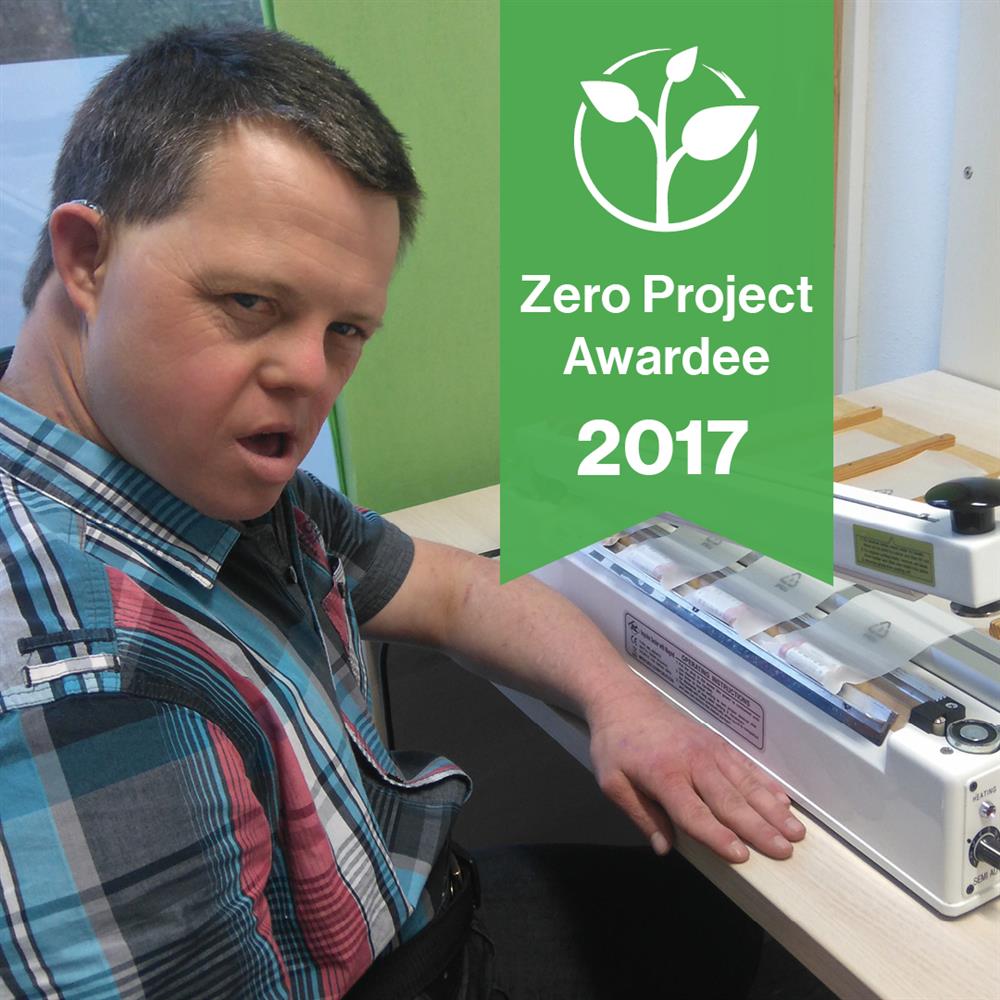Sheltered workshops piloting ‘cooperations’ and the transition to the open labour market
- Solution
- Flachgau inklusiv
- Organization
- Lebenshilfe Salzburg
- Country of Implementation
- Austria
- Region
- Europe
- Subregion
- Western Europe
- Start Year
- 2012
- First published
- 31.01.2017

Solution details
People
“Christina is a big help in our office. We are all very happy that she works with us!” Rosmarie Lindner, a mentor of Flachgau Inklusiv
Lebenshilfe Salzburg is an Austrian NGO and service provider that supports people with intellectual disabilities, guiding them through the various stages of their life and preparing them for independent living. In the regional province of Flachgau, in the Austrian country state of Salzburg, Lebenshilfe started a cooperation with companies and public institutions in 2012 with the aim of integrating people with disabilities into the open labour market.
Problems Targeted
The employment of people with intellectual disabilities in Austria is often limited to sheltered workshops, and the transition to the open labour market is difficult. Further, new employees immediately lose all financial support with their first-time employment, even with part-time work and at minimum wages.
Solution, Innovation and Impact
To overcome the limitations of employment in sheltered workshops, Lebenshilfe began to developed ‘cooperations’ with local companies and public institutions in 2012. Using what it calls the “Flachgau inklusiv” model, people with intellectual disabilities can choose to remain working within the sheltered workshops or they can take up assignments with companies or public institutions. In the latter case, support personnel assist with the employee’s integration into the new surroundings, after which a local mentor takes over. These non-workshop jobs are primarily in cleaning, packaging/filling, administration support, and data entry. In 2015, Lebenshilfe started a cooperation with the company teampool, an employment agency, whereby people with disabilities find work in single or in group jobs. The cooperation has proven to be very successful, with 10 persons with disabilities finding jobs in the open labour market in the first year. These workers are employed as Geringfügig Beschäftigte (“marginally employed”) with a salary of approximately EUR 400 per month, which is the highest salary that is allowed by the government without losing social benefits immediately.
Funding, Outlook and Transferability
The “Flachgau inklusiv” model currently has 20 partners, all of which offer employment opportunities. Lebenshilfe Salzburg funds the “Flachgau inklusiv” model through its sheltered workshop activities, which generate revenue, and the regional government of Salzburg funds Lebenshilfe itself. The organization has a target of 20 new jobs in 2017, and there are plans to transfer the model to other Austrian country states. Pilot projects like this are also targeted towards regulators to create greater awareness of the need to improve the legal framework governing the transition process from workshops to the open labour market.
Media
Related information
- Connections
- 2
-
Organization
- People